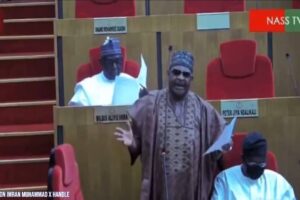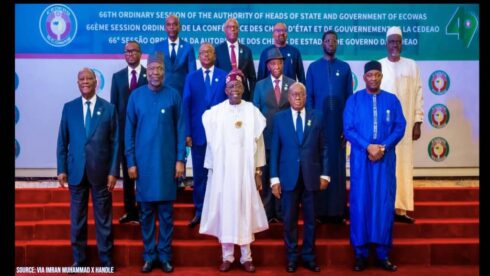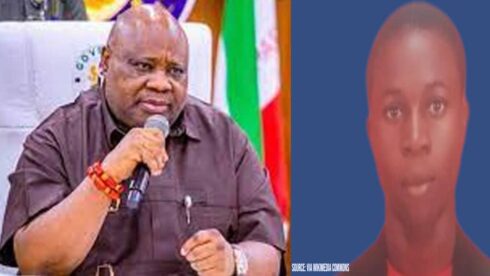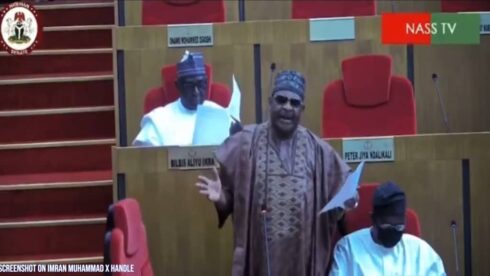The Economic Community of West African States (ECOWAS) has extended a six-month grace period to Burkina Faso, Mali, and Niger to reevaluate their decision to withdraw from the organization. Spanning from January 29 to July 29, 2025, this transitional window offers an opportunity for the three nations to reconsider their stance amid ongoing tensions with the regional bloc. These tensions stem from political instability and security challenges that have significantly strained relations. The announcement was made by Dr. Omar Touray, President of the ECOWAS Commission, during the 66th Ordinary Session of the ECOWAS Heads of State and Government in Abuja, underscoring the organization’s commitment to fostering dialogue and unity.
Dr. Touray highlighted ECOWAS’s intention to maintain an open-door policy during this period, signaling a desire for reconciliation. “The Authority acknowledges the notification of withdrawal but has opted for a transitional period to foster reconsideration and reintegration into the organization,” he stated. By creating a framework for renewed engagement, ECOWAS aims to preserve its foundational principles of regional integration and cooperation. This decision not only reflects the bloc’s determination to avoid fragmentation but also addresses the broader implications of these withdrawals for West Africa’s stability and development.
Mediation Efforts to Foster Reconciliation
To aid in resolving the deadlock, ECOWAS has extended the mandates of the Presidents of Togo and Senegal to continue their mediation efforts until the end of the transition period. These leaders have played pivotal roles in navigating the diplomatic rift caused by recent political upheavals in the three countries.
The mediation initiative underscores ECOWAS’s commitment to fostering regional unity and stability. The extended mandate highlights the bloc’s belief that dialogue remains the most viable path toward reconciliation. These efforts aim to address underlying issues while ensuring the region does not lose the economic and political cohesion it has worked to achieve over decades.
Legal Provisions and Treaty Implications
Under Article 91 of the revised ECOWAS Treaty, the official withdrawal of Burkina Faso, Mali, and Niger will take effect on January 29, 2025. However, the transitional period announced provides a legal framework for reversing the decision, should the countries decide to rejoin the bloc.
This move ensures that ECOWAS operates within its legal provisions while creating space for diplomatic engagement. By adhering to the treaty, ECOWAS aims to uphold its credibility as a rule-based organization, even as it navigates the complexities of political transitions within its member states.
Contingency Planning and Future Relations
In preparation for a potential separation, the ECOWAS Authority has directed its Commission to initiate withdrawal formalities and draft a contingency plan. This plan will outline the political and economic relationships between ECOWAS and the three nations post-withdrawal.
The contingency plan aims to mitigate the impacts of the withdrawal on both sides, ensuring minimal disruption to trade, security collaboration, and other shared interests. The Council of Ministers is tasked with reviewing and adopting these modalities in an extraordinary session scheduled for the second quarter of 2025.
Regional Implications of the Withdrawal Decision
The withdrawal of Burkina Faso, Mali, and Niger poses significant challenges for ECOWAS, including potential disruptions in regional trade, security cooperation, and political stability. These countries play key roles in addressing the Sahel region’s security crises, including terrorism and organized crime.
ECOWAS’s decision to keep its doors open reflects its awareness of the broader implications of this separation. A fractured bloc could weaken the region’s collective bargaining power and undermine its ability to address shared challenges, making reintegration efforts a strategic priority.
Balancing Sovereignty and Regional Unity
The tension between national sovereignty and regional unity remains a core challenge for ECOWAS. Burkina Faso, Mali, and Niger have cited concerns about external interference and a need for greater autonomy as reasons for their withdrawal.
ECOWAS, however, continues to emphasize the benefits of collective action, including economic integration and coordinated responses to security threats. The six-month transitional period offers an opportunity to bridge these differences, ensuring that the bloc remains a united force for regional development and stability.
Table of Contents
Discover more from OGM News NG
Subscribe to get the latest posts sent to your email.














